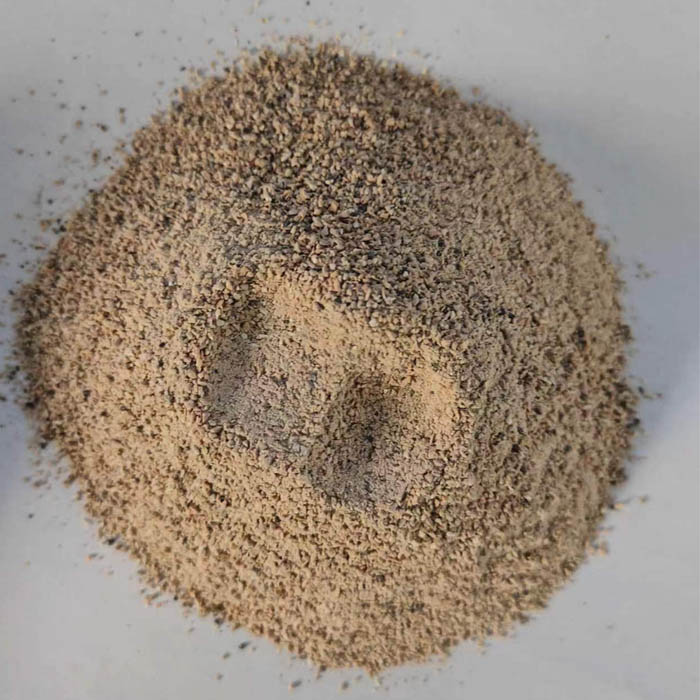Aug . 20, 2024 23:47 Back to list
Leading Manufacturer of High-Quality Powdered Activated Carbon Solutions for Various Industries
The Role of Powdered Activated Carbon Manufacturers in Environmental Sustainability
In recent years, the importance of environmental sustainability has grown significantly, with various industries seeking innovative solutions to reduce their ecological footprints. One of the key players in this movement is the powdered activated carbon (PAC) manufacturer. PAC has emerged as a crucial component in a variety of applications, ranging from water treatment to air purification, and its role in promoting cleaner environments cannot be overstated.
What is Powdered Activated Carbon?
Powdered activated carbon is a form of carbon that has been processed to create a vast network of pores and surface area, enabling it to adsorb a wide range of organic and inorganic contaminants. It is produced by carbonizing raw materials like coconut shells, wood, or coal and then activating the carbonized material through steam or chemical processes. The resulting fine black powder is used extensively in various industries due to its high adsorption capacity and effectiveness.
Applications of Powdered Activated Carbon
1. Water Treatment PAC is widely used in the treatment of drinking water and wastewater. It helps in removing impurities, including harmful chemicals, heavy metals, and microorganisms. Water treatment facilities utilize PAC to ensure that water meets safety standards, protecting public health and the environment.
2. Air Pollution Control In air purification applications, powdered activated carbon is effective in capturing volatile organic compounds (VOCs), odors, and hazardous gases. This makes it an essential component in industrial ventilation systems and air filters, contributing to improved air quality.
3. Food and Beverage Industry In the food industry, PAC is used to decolorize liquids and remove unwanted flavors and odors. Its application in processes like sugar refining and beverage production underscores its versatility and importance in maintaining quality and safety standards.
4. Pharmaceuticals and Cosmetics The pharmaceutical industry uses PAC in drug manufacturing to remove impurities, ensuring the efficacy and safety of medications. Similarly, in cosmetics, it plays a role in enhancing product purity and performance.
unnnnnnnnnnchar powdered activated carbon manufacturer

The Importance of PAC Manufacturers
PAC manufacturers are integral to meeting the growing demand for activated carbon products. They not only provide high-quality materials but also invest in research and development to innovate and improve their offerings. These manufacturers often prioritize sustainable practices, such as sourcing raw materials responsibly and employing eco-friendly production methods.
Moreover, manufacturers often collaborate with environmental agencies and contribute to regulatory compliance efforts. By ensuring their products meet stringent environmental standards, they play a role in promoting responsible manufacturing practices within the industry.
Challenges and Future Prospects
Despite the benefits, PAC manufacturers face several challenges, including fluctuating raw material costs and increasing competition. However, the rising awareness of environmental issues presents an opportunity for growth. As industries increasingly adopt sustainable practices and regulations become more stringent, the demand for powdered activated carbon is expected to rise.
The future of PAC manufacturing looks promising, particularly with advancements in technology that enhance the efficiency of activated carbon production. Innovations such as the development of composite materials and the exploration of alternative feedstocks can help manufacturers meet the evolving needs of various sectors.
Conclusion
In summary, powdered activated carbon manufacturers play a vital role in environmental sustainability. Their products are essential in combating pollution, ensuring clean water, and enhancing air quality. As the world continues to prioritize environmental responsibility, the significance of PAC and its manufacturers will only increase, making them key allies in the quest for a cleaner, healthier planet.
-
High-Quality Fe-C Alloy Leading Manufacturers & Spherical Alloy Materials Supplier
NewsJun.10,2025
-
Premium Low Nitrogen Recarburiser Supplier & Manufacturer – High Quality Exporters
NewsJun.10,2025
-
DT4 High-Quality Magnetic Materials Leading DT4 Manufacturer & Supplier
NewsJun.10,2025
-
High-Performance Spring Steel Suppliers Custom Solutions
NewsJun.10,2025
-
Premium SWRCH6A Manufacturer Steel Wire Supplier & Factory
NewsJun.10,2025
-
Premium Mild Steel Wire Rod Supplier & Manufacturer
NewsJun.10,2025
